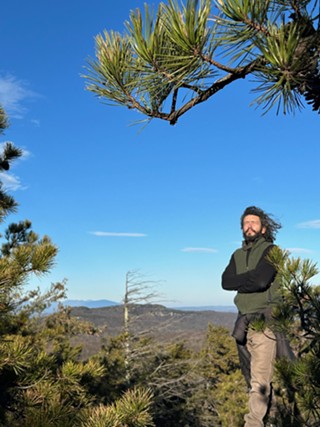"Thunder within the earth: The image of The Turning Point. Thus the kings of antiquity closed the passes At the time of the solstice. Merchants and strangers did not go about, And the ruler Did not travel through the provinces."
—I Ching, hexagram 24 Fu / Return (The Turning Point)
As the end of the year approaches I find myself surprised that darkness has come so early. A day seems to end before it has really begun. The diffuse light, gray skies and empty trees evoke a feeling that is both melancholic and thrilling.
It is the beginning of winter and the phase brings an inner pressure for completion. In this time, I feel an instinctive need to clean things up for a period of rest and concentration in readiness for a new cycle of growth and expansion in the spring. Readying the garden for winter, cutting back plants and surrounding them with a protective blanket of mulch and leaves, is an analog of what is invited in all the areas of life.
Now we bring the light inside with sparkling trees and menorahs and warm fires. We gather together with aged eggnog and fruit cake and friends and prepare to go inward, to rest.
As my parents and their generation grow older I see the same impulse arising within a larger arc. They are getting affairs in order. My dad is cleaning out his desk and I get text messages—photos from before I was born, him and my mom as handsome 20-somethings, me as a baby, clips from his favorite Bob Dylan lyrics from the memory archive. Today I received this joyous, simple message: So happy just to be alive underneath this sky of blue on this new morning, this new morning with you.
We live in a polyrhythmic matrix of cycles and take the biological rhythms of heartbeat, breath, sleeping and waking, seasons and years, living and dying, as givens. Longer cycles on a larger scale are more difficult to comprehend.
I can't tell if it's the dark season or the news, but there is a sense that we are collectively approaching the solstice of an epoch. It feels like the end of a long cycle in the life of human civilization, begun five or six thousand or so years ago with what historians like to call "the dawn of civilization."
This season in the life of humanity started with a creative explosion of language and farming and religion and science and laws and architecture and perhaps other things that have been buried in the sands of time. In a sense, the big developments happened at the very beginning and have been refined, or, arguably, degraded ever since.
Regardless of how one assesses the progress or lack of progress since the Sumerians began recording knowledge in cuneiform and the Egyptians built the Great Pyramid, there is nevertheless a sense that the resources of the current civilization are depleted, and have lost their usefulness to humanity and the life of the biosphere.
The assessment that humanity is approaching the winter solstice of a long epoch is not a doomsday forecast or a judgment. Rather it is a sense many people share that much of what was prepared by our forebears has run its course. Many feel the institutions we relied on in our lifetimes are crumbling. Values that held systems in place have become caricatures and the social framework a gossamer web of support ready to fall to pieces and blow away in the wind.
About 60 years ago, an Indian saint named Shivapuri Baba was asked about this by a visitor, Tarzie Vittachi. The following is excerpted from Long Pilgrimage: The Life and Teaching of the Shivapuri Baba, Hodder and Stoughton Ltd, 1965.
TV: Does the world grow and degenerate periodically? Why do people build and destroy what they build—even civilizations?
SB: Everything we build must be discharged and rebuilt. This is a periodical process. Every 100 years some change takes place. Every 1,000 years some great change. Every 2,000 years the end of an epoch. Every 6,000 years a major disaster to civilization. Every 12,000 years a complete change. We are now at the end of a 6,000-year cycle.
TV: Will the destruction you foresee be localized?
SB: No. It will be everywhere. In cities and villages. Something will be left behind to carry on this world with people who have sensed and seen the results of material living.
TV: How does one prepare for this? Not escape this—but prepare for this?
SB: There is only one way. Begin to do your duty now. And meditate on the meaning of one's life.














